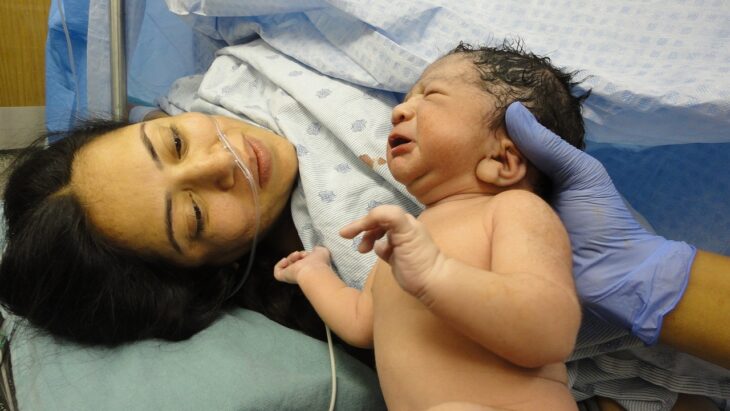
Preimplantation genetic testing (PGT) is a screening test that examines embryos created via IVF prior to their placement into the uterus. PGT uncovers many different genetic and chromosomal conditions that could gravely impact pregnancy and your future child. Here we take a look at just what kinds of conditions, and birth defects PGT uncovers.
Before we delve into the conditions PGT can find let’s understand how and why your doctor suggests PGT during your IVF cycle and how they perform the test.
Performing the Test
You know the basics of IVF; the lab combines the female’s eggs with the male’s sperm and creates embryos. The doctor places one of these embryos into the female’s uterus so it may develop and grow into a healthy pregnancy and delivery of a healthy baby.
Once the sperm fertilizes the egg in the laboratory setting it takes about five days for the embryo to develop. The embryologist observes normal cell division indicating the embryo and around the fifth day the embryonic cells divide into two separate entities. One is what will be the embryo itself and the other the placenta.
At that stage the pre-placental cells are ready for PGT. An embryologist removes a few cells from the pre-placental group and tests for genetic and chromosomal abnormalities. The doctor informs you of the findings and you may decide on the next steps. If your embryos test healthy and free from any potential abnormalities, you may follow through with your embryo transfer and possibly preserve any remaining embryos via cryopreservation (freezing).
Reasons for PGT
One of the most common causes behind miscarriage or loss of pregnancy occurs when the embryo fails to develop due to a genetic abnormality. Through PGT the lab identifies any abnormal genetics and confirms the correct number of chromosomes. This lowers the risk for failed IVF or miscarriage. Your doctor suggests PGT in the following circumstances:
- Females over 37 who have a higher risk, due to age, of abnormal embryo genetics
- A history of recurrent (more than three) miscarriages likely due to a chromosomal abnormality
- Couples who, through genetic carrier screening, find a genetic predisposition for inherited genetic diseases
What The Tests May Reveal
There are three specific types of PGT, and they test for different genetic conditions. They are PGT-A, PGT-M and PGT-SR.
PGT-A
This type of PGT identifies chromosomal abnormalities. Each parent contributes their biological material resulting in 23 chromosomes from each (46 chromosomes or 23 pairs). If the embryo cell is missing a chromosome or there is an extra chromosome it’s called aneuploidy, the “A” in “PGT-A”. A missing chromosome is monosomy, and an additional chromosome is trisomy.
Aneuploidy is one of the leading causes of miscarriage and failed IVF. An embryo can only survive one type of monosomy. Turner’s syndrome which is the absence of one of the X chromosomes. Trisomy may result in a live birth however the baby may have Down syndrome or the more devastating Patau syndrome or Edward syndrome in which the baby only survives a short time.
PGT-M
This test looks for a known gene mutation which the biological parent carries. A family history of a genetic condition provides the cause for PGT-M. When a genetic disorder involves a single specific gene it’s due to a mutation in the DNA sequence. Some of these gene mutations cause cystic fibrosis or sickle cell disorder. Some genes identify a high risk for developing certain cancers such as breast or ovarian cancers (BRCA-1 or BRCA-2). Other common gene mutations discovered via PGT-M:
- Huntington’s Disease
- Tay-Sachs Disease
- Muscular Dystrophy
- Fragile-X Syndrome
PGT-SR
Doctors refer to this testing as PGT-SR because the SR stands for structural rearrangements. Biological parents with a known structural rearrangement have inverted or translocated chromosomes. These individuals produce embryos without the correct amount of chromosomal material. That results in loss of the pregnancy. Your doctor recommends PGT-SR if you’ve experienced multiple miscarriages.
If your test reveals a structural rearrangement, you may benefit from donor eggs or sperm.
Why Test?
As we stated above one of the most common reasons for failed IVF and miscarriage is a genetic abnormality. PGT helps lower the risk for miscarriage or failed IVF by ensuring your embryo has the correct number of chromosomes and healthy genes. The peace of mind you obtain from PGT is immeasurable.
We Provide Peace of Mind
If you want more information on the different tests or want to discuss your genetic predisposition before you conceive via IVF contact LA IVF. Our caring and compassionate staff take your goal for growing your healthy family to heart. Let us provide you with the peace of mind you need for a happy, healthy pregnancy.

